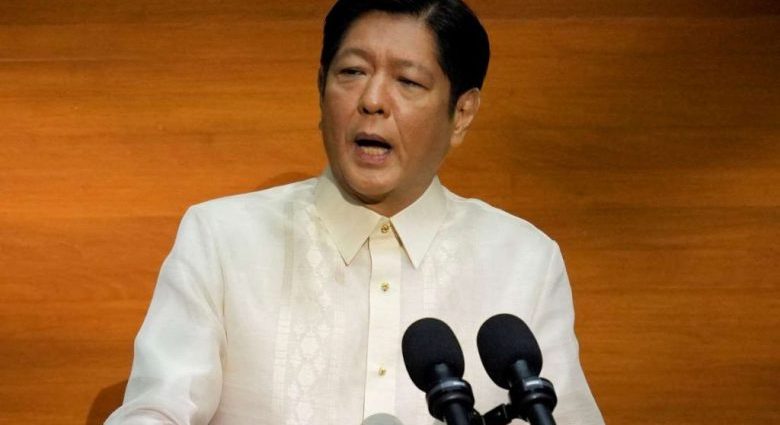Officials from America, South Korea and Japan met in Nagano, Japan in mid-July to discuss a response to North Korea‘s recent intercontinental ballistic missile test. This is the latest example of South Korea warming up to Japan. It comes after the deep freeze of the Moon Jae-in presidency.
An acquaintance asked what this meeting tells us about the South Korea-Japan relationship – and, in particular, whether Seoul and Tokyo have put historic and territorial disputes behind them?
I told him there are lessons not only for that relationship but for the United States in its dealings with allies such as South Korea and the Philippines that have made some hard choices and need help justifying those choices.
Three parties in Nagano
The meeting in Nagano regarding North Korea is further evidence that South Korea has at least put historic and territorial issues on the back burner. Such things never completely go away.
The Japanese have been more willing to overlook past history. Meanwhile, the Koreans – seeing themselves as the perpetually aggrieved party, have found it difficult to “let it go.”
However, South Korean President Yoon Suk Yeol is showing impressive statesmanship since taking office in March 2022. He has tamped down anti-Japanese resentments while prioritizing what he considers South Korea’s broader national interests. Those interests are underpinned by the Republic of Korea-United States alliance.
Yoon is bringing South Korea back to closer and friendlier ties with Japan. And into something of a three-way security tie-up with the United States.
The Americans have wanted this for a long time.

Progress from the Moon years
This is a major change from just a couple of years ago when then-President Moon Jae-in stoked and wielded anti-Japan sentiments in South Korea for political gain – even accusing the conservative opposition of being Japanese stooges.
In the process, he drove South Korea – Japan relations to the lowest point in recent memory. Meanwhile, he irked his erstwhile ally, the United States. Any real cooperation from Seoul with the Japanese on defense matters was out of the question – beyond the most grudging measures that Washington could force on South Korea.
Moon was also not particularly friendly towards the United States – despite superficial performances to the contrary.
Indeed, Moon and his closest associates were accused, and not without reason, of being pro-China and even pro-North Korea. Many of the legislators in Moon’s party were similarly inclined. That was even though within the South Korean public writ large there was no great love for China or for North Korea. And, ironically, opinion polls regularly showed overwhelming support for the South Kroea-US alliance and the American military presence as well.
So one sees the difficulty the Americans faced in their long-standing efforts to build Japan-South Korea ties. That includes trying to create a trilateral approach to dealing with North Korean threats and, although not explicitly stated, the Chinese threat as well.

Give credit where it’s due
Let’s give credit where it’s due for the recent improvement in ROK-Japan ties and for South Korea’s willingness to do more in a joint way with the US and Japan.
As noted, the Americans, and particularly the US military, have been pushing this for years. Now they are finally getting some results.
It’s to be hoped that the Americans realize that even though South Korea has shifted towards a more cooperative stance – both towards Japan and towards the United States – for which President Yoon deserves much credit – such things are never permanent.
Pay attention, Washington
There is still a sizeable constituency in South Korea that would move things back to where they were, and that will play the Japan card for all its worth in domestic politics.
Note also that the South Korean opposition, the Democratic Party of Korea (with pro-China and pro-North Korea elements) still holds a majority in the National Assembly. And it doesn’t support President Yoon’s foreign policy shifts towards closer Japan and US ties. Yoon was, in fact, elected by a razor-thin margin.
So the Americans ought to pay close attention. For example, they should offer President Yoon and the conservatives some special treatment and advantages (not least economic advantages).
Let President Yoon demonstrate to the Korean public that it is worth siding with the United States. And getting along with America’s principal Asian ally – the Japanese.

And in the Philippines
A similar dynamic is playing out in the Philippines. Things have shifted in the US’s favor following President Ferdinand “Bongbong” Marcos‘ election in 2022. But Philippine politics is mercurial. And Marcos faces plenty of opposition – not least from former President Rodrigo Duterte and his daughter, Sara. She is now vice president.
Marcos also isn’t on speaking terms with his own sister, Imee, who is a political force in her own right.
So one hopes the Americans aren’t taking things for granted. They must also realize things can just as easily shift back to when then-President Duterte called then-President Barack Obama a “son of a …..”
That contretemps, by the way, didn’t come out of the blue. Duterte’s souring on the US grew out of frustration over the Obama administration’s supineness in allowing the Chinese to seize the Philippines’ Scarborough Shoal in 2012. Washington disingenuously argued that the US-Philippines security treaty did not apply.
Washington should be grateful that some things have turned its way in Asia – as they have in South Korea and the Philippines. But they’ll swing back the other way if the US State Department and the administration don’t pay attention. The United States must demonstrate that there are tangible benefits – both economic and in terms of the protection that come from being America’s friend.
Grant Newsham is a retired US Marine officer and former US diplomat. He is the author of the book When China Attacks: A Warning To America. This article was originally published by JAPAN Forward and is republished with permission.

